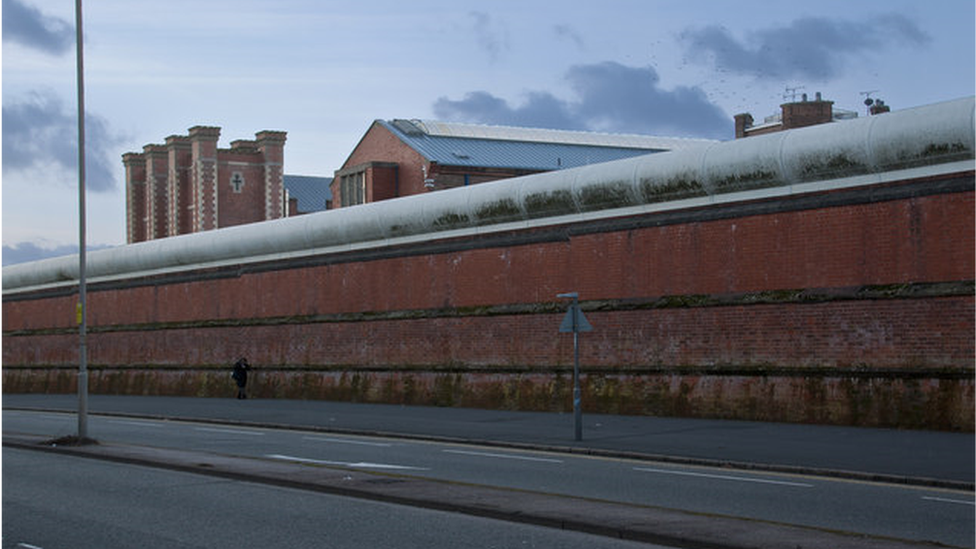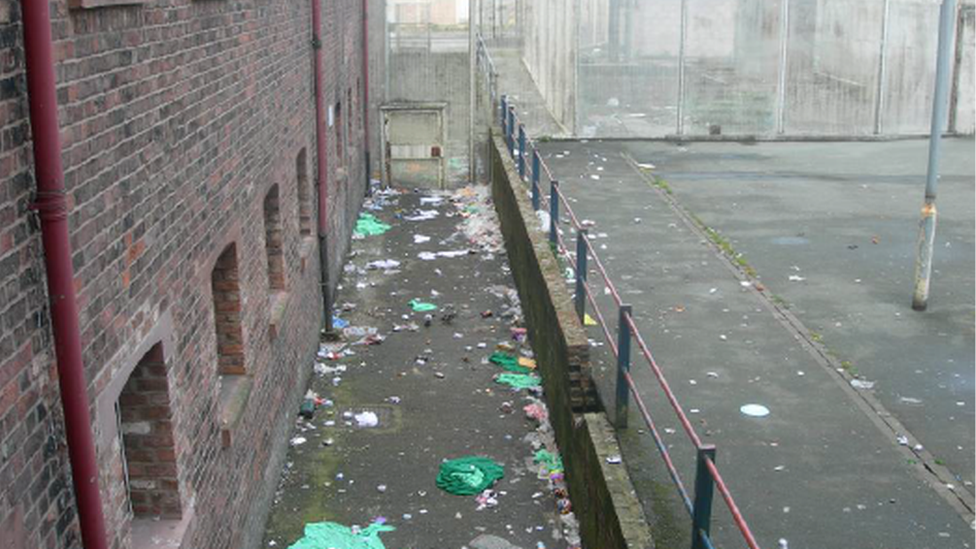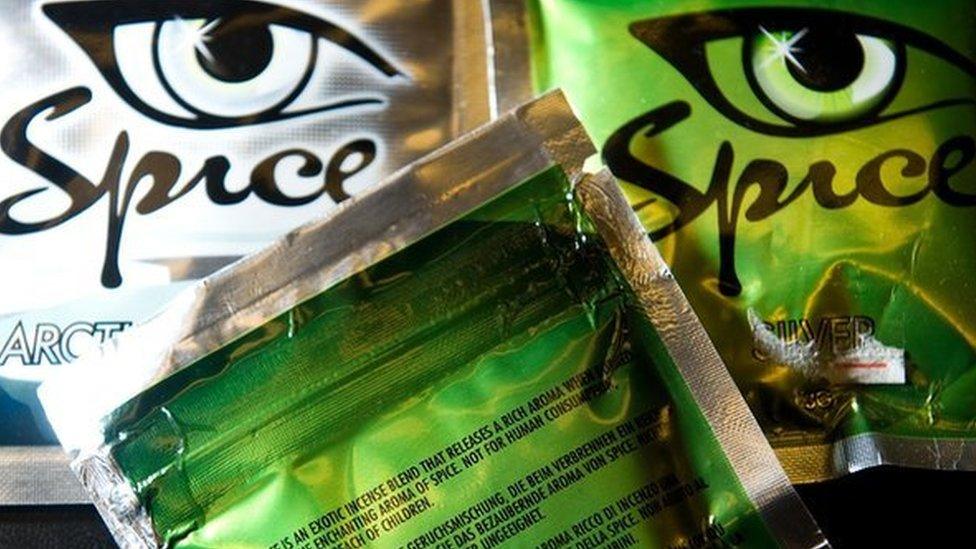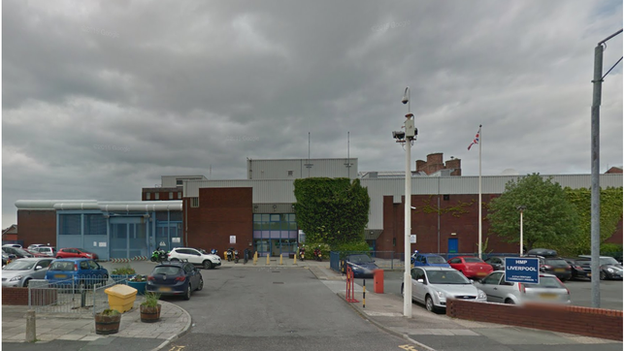Liverpool prison report: Deaths, assaults and balaclavas highlighted
- Published

Liverpool's Walton Prison is a Victorian building which houses almost 1,400 inmates
Deaths and violence at HMP Liverpool have been highlighted by campaigners in light of a damning inspection.
An official report, external by HM Inspectorate of Prisons (HMIP) found the jail in Walton had "deteriorated dramatically" following 11 deaths in 14 months.
Prison life was "chaotic", assaults on staff had soared and officers stormed cells wearing balaclavas, the inspection found.
The Howard League for Penal Reform said the report made for "grim reading."
The HMIP report followed an unannounced 11-day visit in May and found a "worrying" three-fold increase in staff assaults.
Mark Fairhurst, a prison officer, told the BBC he believed at least one recent death was due to the legal high "Spice".
The Howard League, a charity that campaigns for prison reform, said 10 men had died in the preceding 14 months and another died shortly after the inspection. The HMIP report said three deaths were self-inflicted.
'Meltdown'
In one incident, a prisoner was given no chance to comply with staff instructions before prison officers wearing balaclavas entered his cell.
The inmate resisted efforts to restrain him but was eventually left naked in a gated cell despite a manager's approval for him to have his own clothes.

Rubbish strewn outside B Wing at Walton Prison was highlighted in the report as an area of concern
Flame retardant balaclavas are issued to staff trained in advanced control and restraint techniques, the Prison Officers' Association (POA) said.
They "protect staff from a variety of hazards" including fire, corrosive materials, hot fluids and faeces and urine, national executive committee member Mark Fairhurst said.
Frances Crook, chief executive of the Howard League, said a "lack of managerial oversight" meant prisoners spent hours "locked inside their cells" and "these are the symptoms of a prison system that has been in meltdown".
She said staff were "working under intolerable pressure as prison conditions have deteriorated" but added: "It is totally unacceptable for officers to be storming into cells while wearing balaclavas."
"It is extraordinary that managers appear to have been unaware that this was going on," she added.
The HMIP report found health provision had "deteriorated dramatically" during 2014 and was the subject of a number of interventions.
Sex offenders located in the first-night centre felt "unsafe" because of their proximity to mainstream prisoners.

Key inspection findings
Nearly half of prisoners thought it was easy to get drugs in the prison and random testing suggested illicit drug use was comparatively high
Disciplinary procedures were applied disproportionately but the use of force was nearly double at similar prisons
The prison daily routine was chaotic and unpredictable and 44% of prisoners were locked in their cells during the day

Nick Hardwick, the Chief Inspector of Prisons, said: "Throughout this report we have noted a series of backward steps.
"The prison has many longstanding problems to deal with and we acknowledge that urgent issues concerning health and, to an extent, the number of deaths in custody were being addressed."
He said there were pockets of good work but managers and staff needed to "get a better grip on issues".
The Ministry of Justice said: "Prisons should offer offenders the chance to get the skills and qualifications they need to turn away from a life of crime."
Michael Spurr, chief executive of the National Offender Management Service, said the governor and staff at Liverpool were determined to improve and action was being taken.
"The Victorian environment is challenging," he said.
"But as the chief inspector makes clear - Liverpool is 'not a fundamentally poor prison' and I'm confident the action being taken will deliver real progress over the coming months."
- Published29 September 2015

- Published5 August 2015
